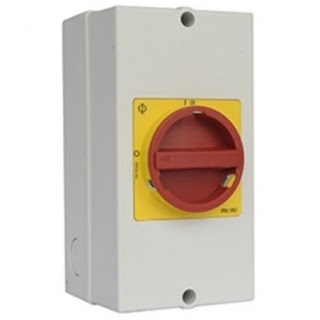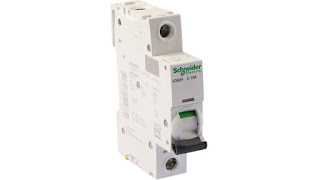In this article, we are going to talk about Isolator and Circuit Breaker. Let's examine each of them separately, express their applications, and mention the Difference Between Isolator and Circuit Breaker. Stay with us.
Isolator and Circuit Breaker
An isolator is one type of switching device, and its fundamental function is to make sure that a circuit is totally not triggered in order to perform the preservation. It is also recognizable like isolation switches to isolate a fraction of the electrical circuit when it is required.

A circuit breaker is an automatically operated electrical switch designed to protect an electrical circuit from damage caused by excess current from an overload or short circuit. Its basic function is to interrupt current flow after a fault is detected. Unlike a fuse, which operates once and then must be replaced, a circuit breaker can be reset (either manually or automatically) to resume normal operation.

Isolator vs Circuit Breaker
Some of the Difference Between Isolator and Circuit Breaker include the following and we will examine each of these in the following.
- Construction
- Withstand Capacity
- Operation
- Function
Function:
When a fault occurs in a substation, then the isolator cuts out a portion of a substation. The other apparatus works without any intrusion.
The circuit breaker is like an Automatic circuit breaker (ACB) or Miniature circuit breaker (MCB) that trips the entire system if there is an error occurs.
References:
https://en.wikipedia.org/wiki/Circuit_breaker
https://www.linquip.com/blog/difference-between-isolator-and-circuit-breaker/
- ۹۹/۱۱/۰۴